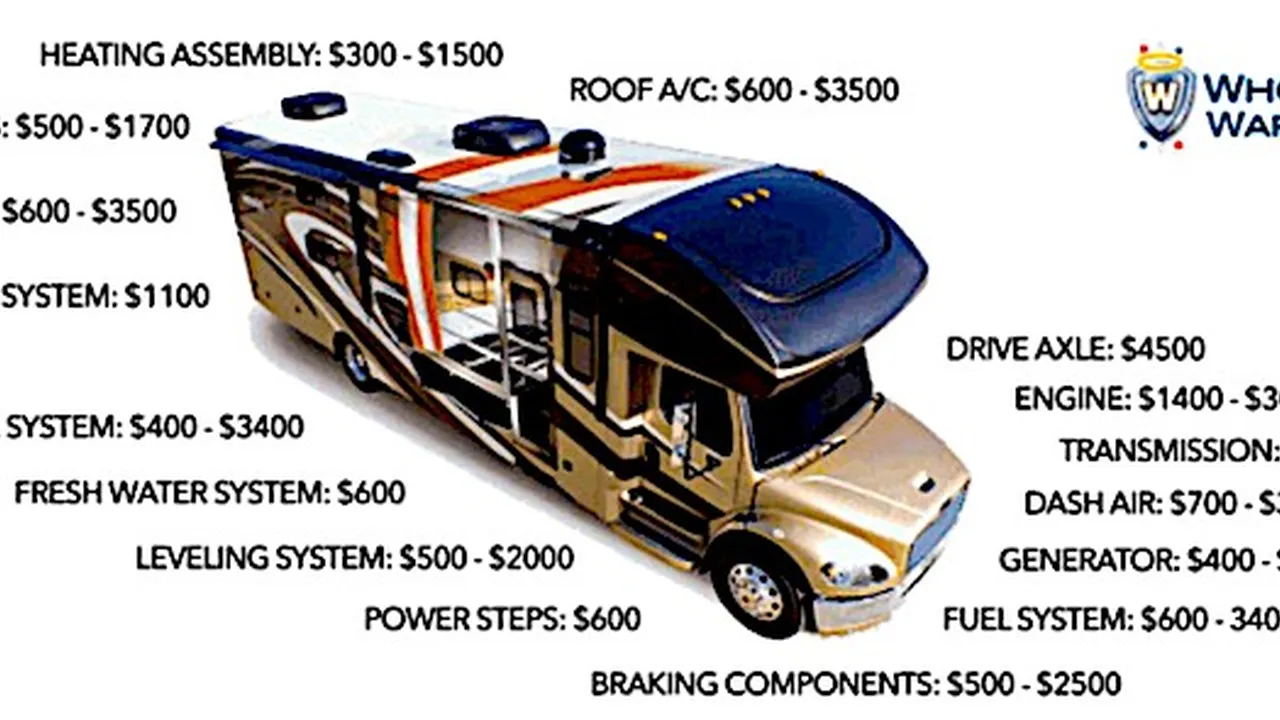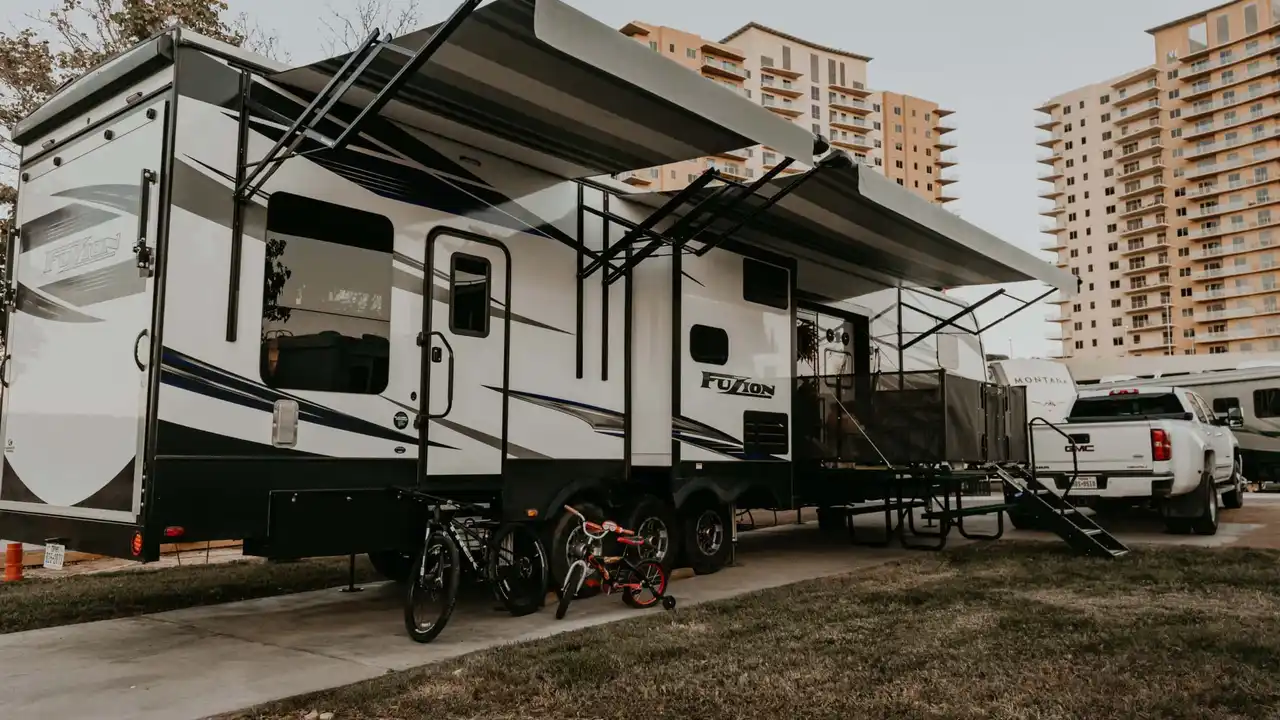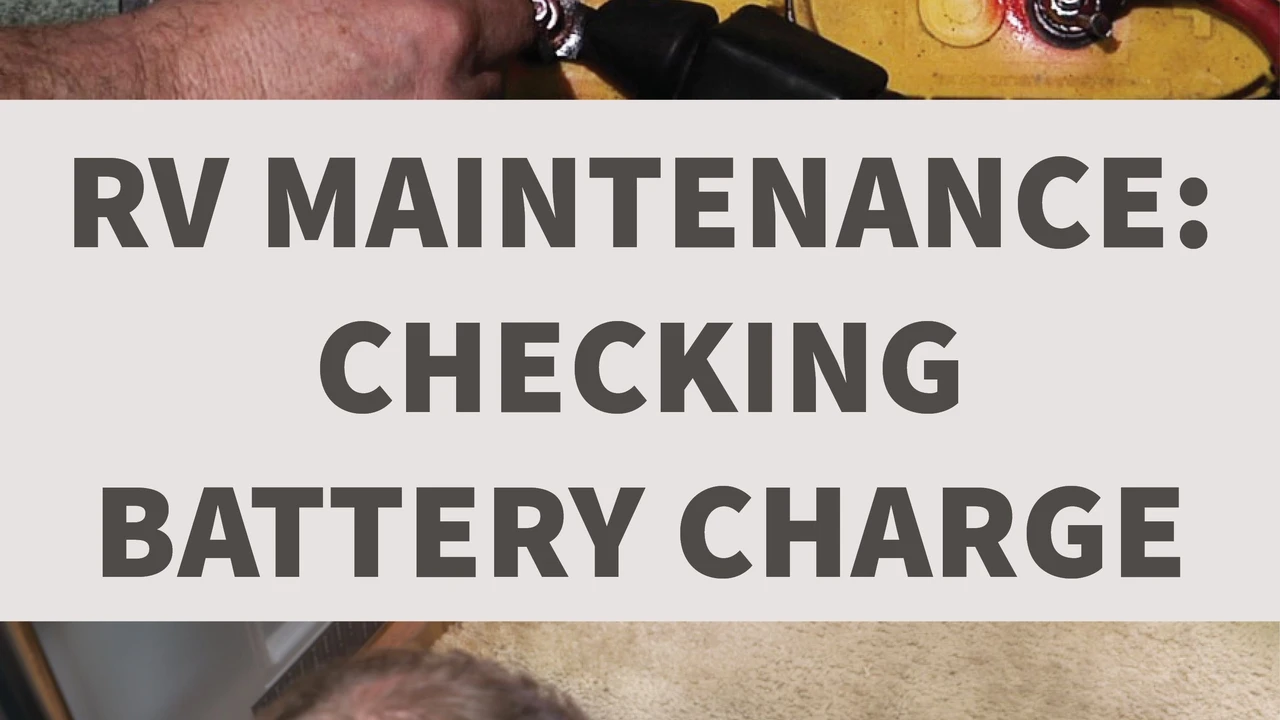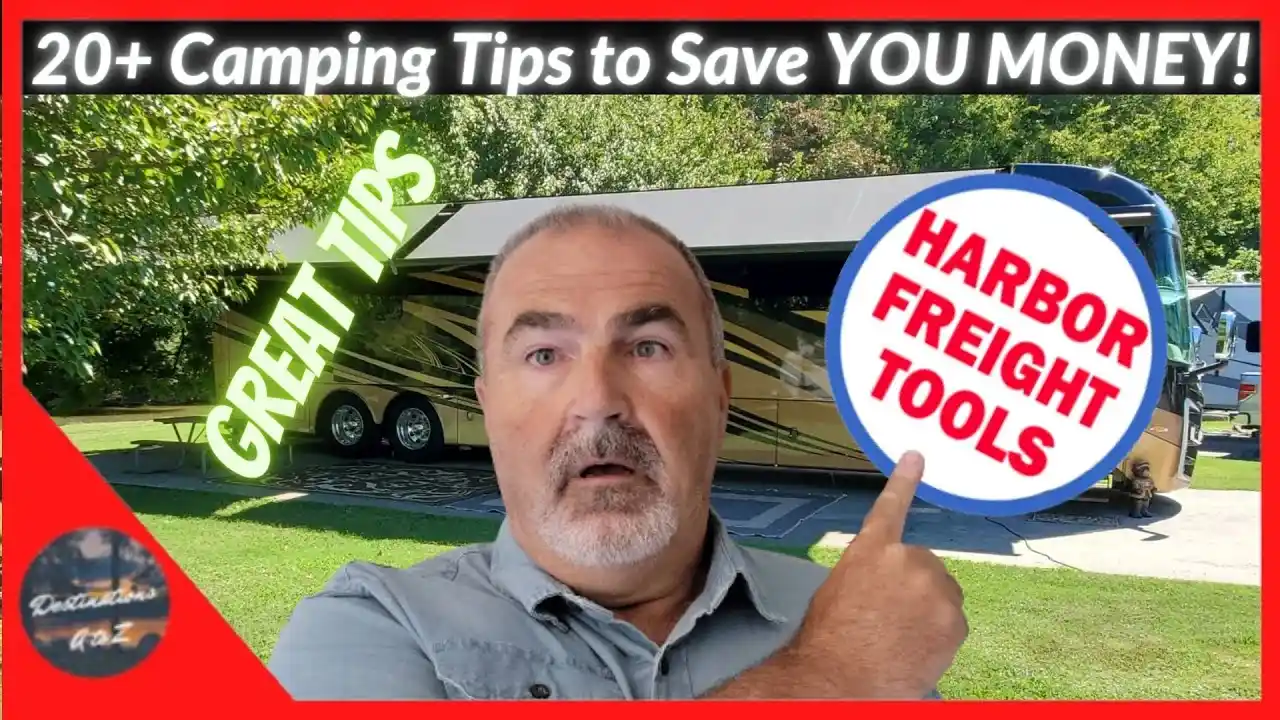RV Warranties Explained: What's Covered and What's Not

Understanding RV Warranties The Basics
So, you're diving into the world of RV ownership? Congratulations! It's an exciting journey filled with adventure and unforgettable memories. But before you hit the open road, let's talk about something crucial that often gets overlooked: RV warranties. Think of them as your safety net, designed to protect your investment from unexpected repairs and costly breakdowns.
At its core, an RV warranty is a contract between you and a warranty provider. This contract outlines the specific components of your RV that are covered, the duration of the coverage, and any deductibles or limitations. It's essentially an insurance policy for your RV, giving you peace of mind knowing that you won't be completely blindsided by expensive repairs.
But here's the thing: RV warranties aren't a one-size-fits-all solution. They come in various shapes and sizes, each offering different levels of protection. Understanding the nuances of these warranties is crucial to making an informed decision that suits your specific needs and budget.
Types of RV Warranties Exploring Your Options
Navigating the world of RV warranties can feel like deciphering a foreign language. Let's break down the most common types of RV warranties to help you understand your options:
Manufacturer's Warranty The Initial Coverage
When you purchase a brand-new RV, it typically comes with a manufacturer's warranty. This warranty is offered by the RV manufacturer and covers defects in materials and workmanship for a specific period, usually one to three years. The specifics of what's covered can vary widely between manufacturers, so it's essential to carefully review the warranty documentation.
Think of the manufacturer's warranty as the initial layer of protection. It covers the major components of the RV, such as the chassis, engine, and appliances. However, it may not cover everything, and it often excludes wear and tear, damage caused by accidents, or improper maintenance.
Extended RV Warranties Comprehensive Protection
Once the manufacturer's warranty expires, you'll likely want to consider an extended RV warranty, also known as a vehicle service contract. These warranties provide coverage beyond the manufacturer's initial term and can offer a more comprehensive level of protection. Extended RV warranties are typically offered by third-party providers and can be customized to fit your specific needs and budget.
Extended RV warranties often cover a wider range of components than manufacturer's warranties, including appliances, electrical systems, plumbing, and even air conditioning. They can also offer additional benefits, such as roadside assistance, towing services, and trip interruption coverage.
Component Specific RV Warranties Targeted Protection
Sometimes, you might want to focus on protecting specific components of your RV. Component-specific warranties are designed to do just that. For example, you might purchase a separate warranty for your RV's air conditioner, refrigerator, or generator. These warranties can be a good option if you're particularly concerned about the reliability of a specific component.
Component-specific warranties can be more affordable than comprehensive extended warranties, but they only cover the specific components listed in the contract. It's crucial to carefully consider which components are most vulnerable to failure and whether a component-specific warranty is the right choice for you.
RV Warranty Coverage What's Included and What's Not
Understanding what's covered under your RV warranty is just as important as understanding the type of warranty you have. The coverage details will vary depending on the specific warranty provider and the level of coverage you choose. Here's a breakdown of some common coverage areas:
Engine and Drivetrain Protection
The engine and drivetrain are the heart and soul of your RV. A warranty that covers these components can be invaluable, as engine and transmission repairs can be incredibly expensive. Coverage typically includes major components such as the engine block, cylinder heads, transmission, and differential.
Appliances Coverage
RV appliances, such as refrigerators, stoves, microwaves, and air conditioners, are essential for comfortable living on the road. Appliance coverage can protect you from the cost of repairing or replacing these items if they break down due to mechanical failure.
Electrical Systems Coverage
RV electrical systems are complex and can be prone to problems. Coverage for electrical systems can include wiring, generators, inverters, and other essential electrical components.
Plumbing Systems Coverage
Leaks and plumbing issues can be a major headache in an RV. Plumbing coverage can protect you from the cost of repairing or replacing pipes, pumps, and fixtures.
Air Conditioning and Heating Coverage
Staying comfortable in your RV is crucial, especially in extreme weather conditions. Air conditioning and heating coverage can protect you from the cost of repairing or replacing these essential systems.
Exclusions to Be Aware Of
While RV warranties can provide valuable protection, it's important to be aware of what's not covered. Common exclusions include:
- Wear and tear
- Damage caused by accidents or negligence
- Damage caused by improper maintenance
- Cosmetic damage
- Pre-existing conditions
- Damage caused by environmental factors (e.g., floods, earthquakes)
Choosing the Right RV Warranty Factors to Consider
Selecting the right RV warranty can feel overwhelming, but by considering a few key factors, you can narrow down your options and find a warranty that meets your needs:
RV Type and Age
The type and age of your RV will significantly impact the cost and availability of warranties. Older RVs may be more difficult to insure, and the cost of coverage may be higher due to the increased risk of breakdowns.
Your Budget
RV warranties can range in price from a few hundred dollars to several thousand dollars. Determine your budget upfront and look for warranties that fit within your price range.
Coverage Needs
Consider your specific needs and the components of your RV that you're most concerned about protecting. If you're worried about engine problems, prioritize warranties that offer comprehensive engine coverage. If you're more concerned about appliance failures, look for warranties with robust appliance coverage.
Deductibles and Payment Options
RV warranties typically have a deductible, which is the amount you'll pay out-of-pocket for each repair. Lower deductibles usually mean higher premiums, and vice versa. Also, consider the payment options offered by the warranty provider. Some providers offer monthly payment plans, while others require a lump-sum payment.
Read the Fine Print
This is perhaps the most important piece of advice: read the fine print carefully! Pay attention to the terms and conditions of the warranty, including the coverage details, exclusions, and claim procedures. Don't hesitate to ask questions and clarify any ambiguities before signing on the dotted line.
RV Warranty Providers A Comparison
Several reputable RV warranty providers offer a variety of coverage options. Here's a brief overview of some popular providers:
Good Sam Extended Service Plan
Good Sam is a well-known name in the RV industry, and their Extended Service Plan offers comprehensive coverage for a wide range of RV components. They offer multiple levels of coverage to suit different needs and budgets, and they also provide roadside assistance and trip interruption benefits.
Wholesale Warranties
Wholesale Warranties is a broker that partners with multiple warranty providers, allowing you to compare different options and find the best coverage for your RV. They offer a wide range of warranties with varying levels of coverage and deductibles.
Cornerstone United
Cornerstone United offers RV warranties with a focus on customer service and transparency. They provide clear and concise warranty documentation and offer a hassle-free claims process.
Protect My Car
While primarily known for auto warranties, Protect My Car also offers RV warranty options. They provide various coverage plans and boast competitive pricing.
Product Recommendation: Good Sam Extended Service Plan. For comprehensive coverage and a trusted name, the Good Sam Extended Service Plan is a solid choice. Their plans offer extensive protection for major RV components and come with valuable benefits like roadside assistance. * **Use Case:** Ideal for RV owners who want peace of mind knowing they're protected from major repair costs. * **Pricing:** Prices vary depending on the RV type, age, and coverage level. Contact Good Sam for a personalized quote.
RV Warranty Claims Process What to Expect
If your RV experiences a breakdown that's covered under your warranty, you'll need to file a claim. Here's a general overview of the claims process:
- Contact the Warranty Provider: As soon as you experience a problem, contact your warranty provider to report the issue and obtain authorization for repairs.
- Choose a Repair Facility: Your warranty provider may have a network of approved repair facilities, or you may be able to choose your own. Be sure to confirm that the repair facility is authorized to perform warranty work.
- Obtain a Diagnosis: The repair facility will diagnose the problem and provide you with a written estimate of the repair costs.
- Submit the Claim: The repair facility will typically submit the claim to the warranty provider on your behalf.
- Review and Approval: The warranty provider will review the claim and determine whether the repairs are covered under your warranty.
- Payment: If the claim is approved, the warranty provider will pay the repair facility directly, minus any deductible.
Negotiating an RV Warranty Tips and Tricks
Don't be afraid to negotiate the terms of your RV warranty. Here are a few tips to help you get the best deal:
* Shop Around: Get quotes from multiple warranty providers to compare prices and coverage options. * Negotiate the Price: Don't accept the first price you're offered. Negotiate the price down, especially if you're purchasing the warranty at the same time as the RV. * Ask for Discounts: Inquire about any available discounts, such as discounts for seniors, military personnel, or members of RV clubs. * Review the Contract Carefully: Before signing the contract, carefully review all the terms and conditions to ensure you understand what's covered and what's not. * Don't Be Afraid to Walk Away: If you're not comfortable with the terms of the warranty, don't be afraid to walk away. There are plenty of other warranty providers out there.RV Warranty Scams How to Avoid Them
Unfortunately, the RV warranty industry is not immune to scams. Here are some red flags to watch out for:
* High-Pressure Sales Tactics: Be wary of salespeople who use high-pressure tactics to try to get you to sign up for a warranty immediately. * Unsolicited Calls or Emails: Be cautious of unsolicited calls or emails offering RV warranties, especially if they ask for personal information or payment upfront. * Too-Good-to-Be-True Offers: If an offer seems too good to be true, it probably is. Be skeptical of warranties that offer incredibly low prices or promise to cover everything. * Lack of Transparency: Avoid warranty providers that are not transparent about their coverage details, exclusions, and claim procedures. * Negative Reviews: Check online reviews and ratings for the warranty provider before signing up. Be wary of providers with a large number of negative reviews.RV Maintenance and Warranties A Synergistic Relationship
Regular RV maintenance is crucial, not only for keeping your RV in good condition but also for maintaining your warranty coverage. Most RV warranties require you to perform regular maintenance, such as oil changes, filter replacements, and inspections. Failure to perform this maintenance can void your warranty.
Keep detailed records of all maintenance performed on your RV, including dates, services performed, and receipts. This documentation will be essential if you ever need to file a warranty claim.
RV Warranties and Resale Value
Having a valid RV warranty can increase the resale value of your RV. Buyers are often willing to pay more for an RV that's still under warranty, as it gives them peace of mind knowing that they're protected from potential repair costs.
When selling your RV, be sure to transfer the warranty to the new owner. This can be a valuable selling point and can help you get a better price for your RV.
The Future of RV Warranties Trends to Watch
The RV warranty industry is constantly evolving. Here are a few trends to watch in the future:
* Increased Use of Technology: Warranty providers are increasingly using technology to streamline the claims process and improve customer service. * More Customizable Coverage Options: Warranty providers are offering more customizable coverage options to meet the specific needs of RV owners. * Focus on Electric RVs: As electric RVs become more popular, warranty providers will need to develop new coverage options specifically for these vehicles. * Integration with Smart RV Systems: Warranties may become integrated with smart RV systems, allowing for remote diagnostics and proactive maintenance alerts.Final Thoughts on RV Warranties Protecting Your Investment
An RV warranty is a valuable investment that can protect you from unexpected repair costs and provide peace of mind on the road. By understanding the different types of warranties, coverage options, and claim procedures, you can make an informed decision and choose a warranty that meets your specific needs and budget. Remember to read the fine print carefully, negotiate the terms of the warranty, and maintain your RV properly to ensure your coverage remains valid. Happy travels!
:max_bytes(150000):strip_icc()/277019-baked-pork-chops-with-cream-of-mushroom-soup-DDMFS-beauty-4x3-BG-7505-5762b731cf30447d9cbbbbbf387beafa.jpg)






